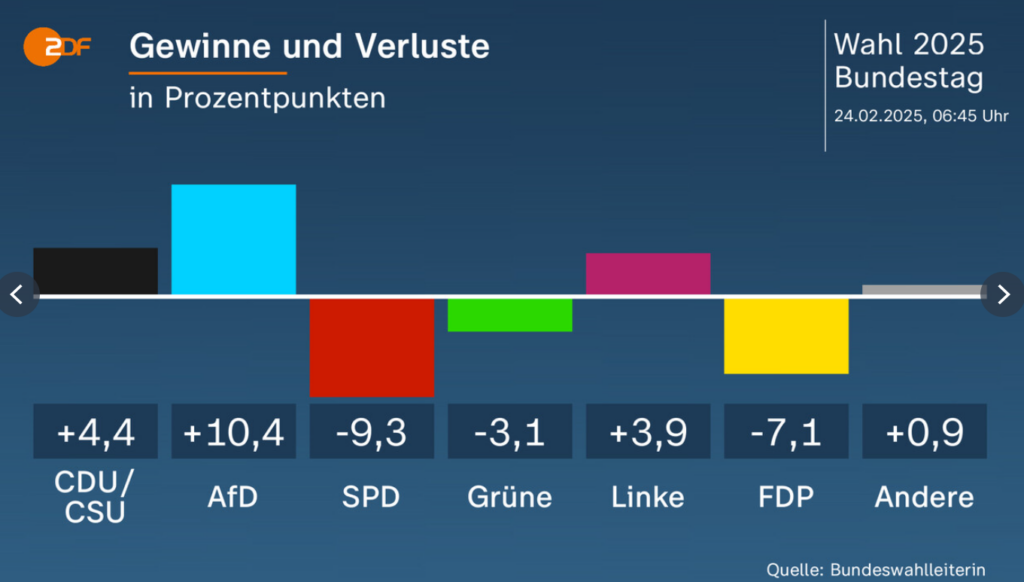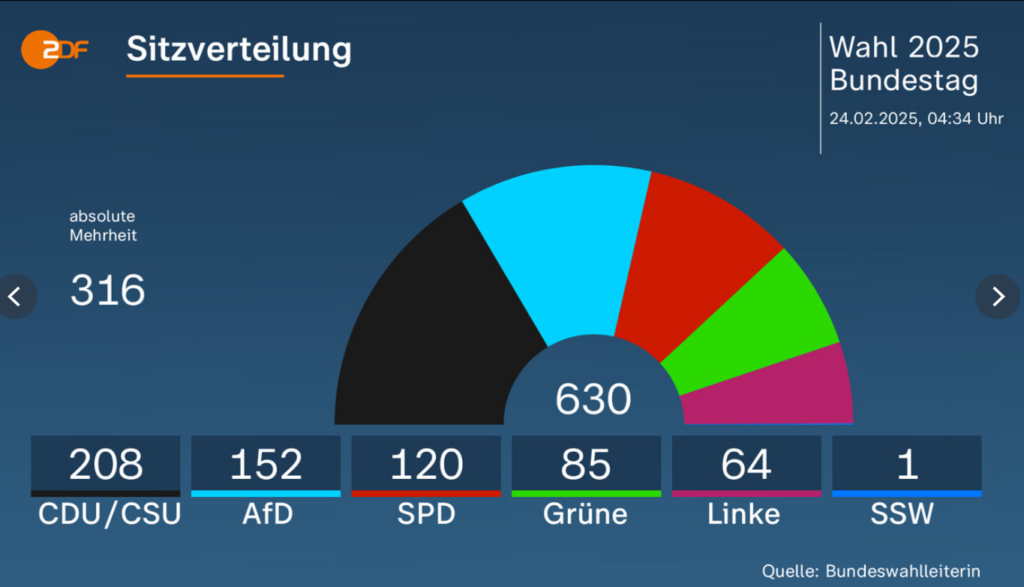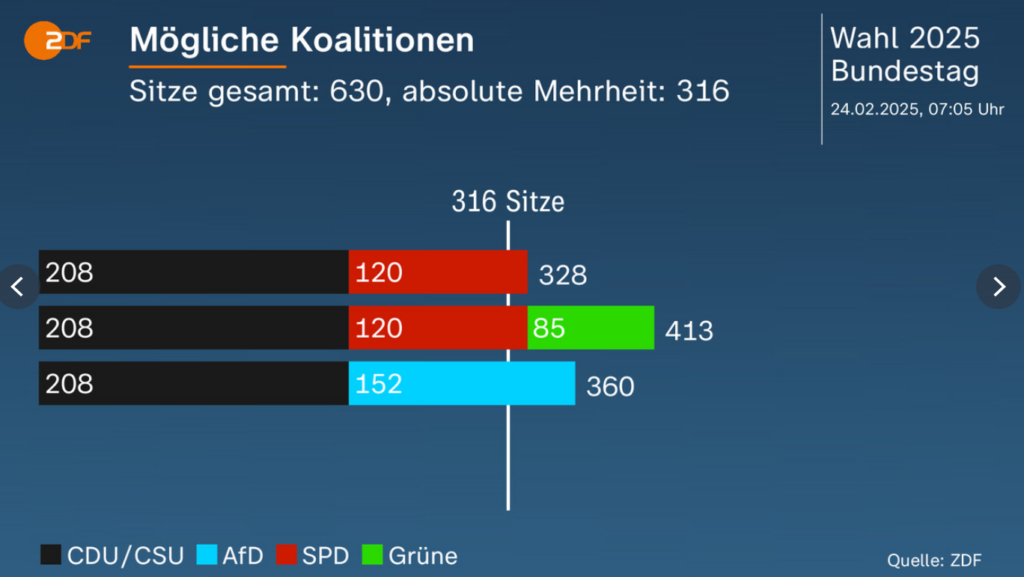When all the results were added up, the Christian Democratic Union won, as smaller parties, including Sahra Wagenknecht's left-wing conservative Alliance, narrowly missed the threshold to enter parliament.
The German Christian Democratic Union (CDU) and its leader Friedrich Merz came first in Sunday's elections with 28 % votes.
The far-right Alternative for Germany (AfD) came in second place with 20 %, doubling its share of the vote from the last German election in 2021 and giving the far-right party its best result in the country since World War II.
Smaller parties failed to reach the 5% threshold needed to enter the Bundestag, including the liberal Free Democratic Party (FDP) and the Union of Sahra Wagenknecht (BSW).
Preliminary results showed for several hours that BSW had managed to cross that threshold - a result that would deeply complicate Merz's desire to form a two-party coalition government.
In the end, BSW won 4.97 votes, while the far-left Die Linke party took advantage of its last-minute success to win 8 % votes.
Olaf Scholz's Social Democrats (SPD) came third with 16 % votes, the party's worst result since 1887.

What is the distribution of seats in the 21st Bundestag?
CDU/CSU: 208 seats
AfD: 152 seats
SPD: 120 seats
Greens: 85 seats
Left: 64 seats
SSW: 1 chair
The Südschleswigsche Wählerverband (SSW), with 0.2 percent, will win one seat in the Bundestag because, as a Danish minority party, it is exempt from the five percent threshold.

What coalitions are possible?
The majority in the new Bundestag is 316 votes. With the FDP and BSW out of the Bundestag, a coalition of CDU/CSU and SPD - formerly known as a grand coalition - would be possible.
The CDU/CSU and the SPD have 328 seats between them.
The CDU/CSU and the AfD have 360 seats between them.
Union, SPD and Greens have a total of 413 seats
Black-Greens, on the other hand, would not have a majority. The CDU/CSU, SPD, Greens, Left and FDP have ruled out an alliance with the AfD. The AfD is being monitored by the Federal Office for the Protection of the Constitution as a suspected right-wing extremist organisation.
Purely mathematically speaking, a "Kenyan" coalition would be possible. However, it is considered unlikely that such an alliance of the CDU/CSU, the SPD and the Greens would actually materialise.
CSU leader Markus Söder, for example, had previously spoken out strongly against a coalition with the Greens - but he deviated from his absolute position shortly after the projections.




